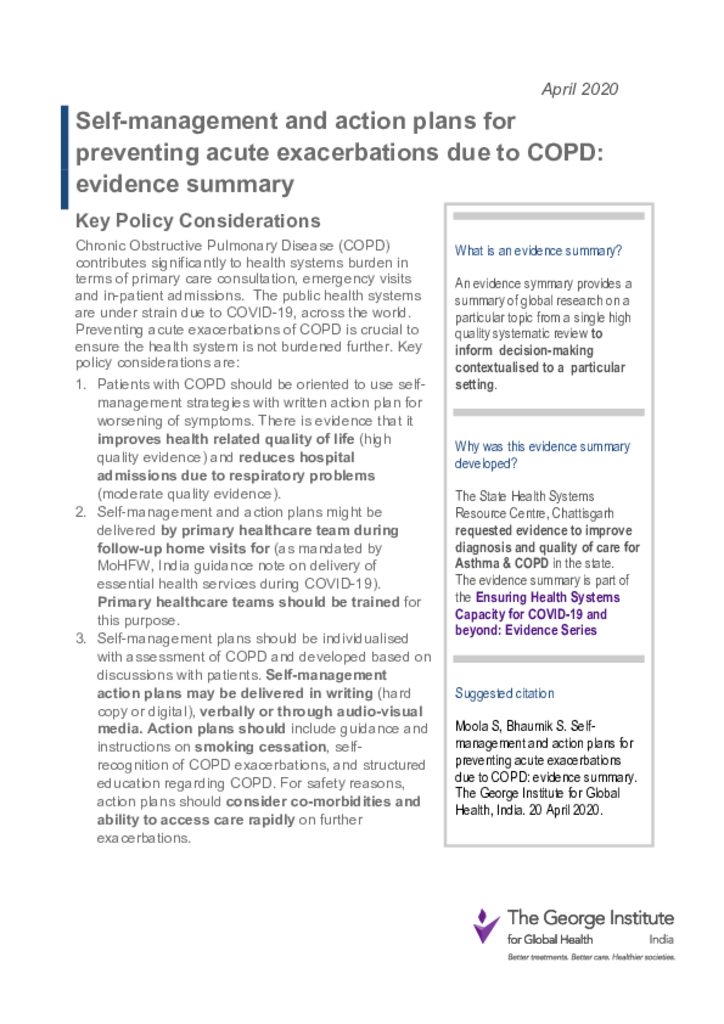
Self-management and action plans for preventing acute exacerbations due to COPD: evidence summary
Chronic Obstructive Pulmonary Disease (COPD) contributes significantly to health systems burden in terms of primary care consultation, emergency visits and in-patient admissions. The public health systems are under strain due to COVID-19, across the world. Preventing acute exacerbations of COPD is crucial to ensure the health system is not burdened further.
This report summarises how hospital admission for acute exacerbations of COPD might be decreased through institutionalisation of self-management and written action plans for patients. The evidence summary informs governments about modalities for decreasing hospital burden through a patient -centric approach which can be delivered during COVID-19 and beyond
Key policy considerations are:
- Patients with COPD should be oriented to use self-management strategies with a written action plan for worsening of symptoms. There is evidence that it improves health-related quality of life (high-quality evidence) and reduces hospital admissions due to respiratory problems (moderate-quality evidence).
- Self‐management and action plans might be delivered by primary healthcare team during follow-up home visits for (as mandated by MoHFW, India guidance note on delivery of essential health services during COVID-19). Primary healthcare teams should be trained for this purpose.
- Self-management plans should be individualised with an assessment of COPD and developed based on discussions with patients. Self-management action plans may be delivered in writing (hard copy or digital), verbally or through audio-visual media. Action plans should include guidance and instructions on smoking cessation, self-recognition of COPD exacerbations, and structured education regarding COPD. For safety reasons, action plans should consider co-morbidities and ability to access care rapidly on further exacerbations.
The document provides a summary of evidence from a single high-quality systematic review which uses reproducible, systematic and robust methods to summarise evidence from multiple research studies (in this case randomised controlled trials) to inform decision making. We summarise effect estimates but also the quality of evidence using the WHO recommended GRADE criteria.
Download full report (PDF 328 KB)
This report is a part of the “Ensuring Health Systems Capacity for COVID-19 and Beyond: Evidence Series” .
The series aims to provide high quality and contextualised evidence from systematic reviews or rapid evidence synthesis to work on the opportunity the COVID-19 scenario offers i.e., to build a strong, resilient and equitable health system in India and other low and middle income countries.



